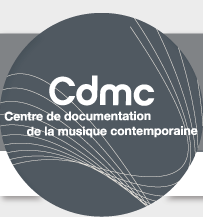Gilles Deleuze, thought-music
 Cover: Simon Hantaï
Cover: Simon Hantaï
Blanc, 1974 (detail)
Acrylic paint on canvas
© Archives Simon Hantaï
Music holds a significant position in the thought of Gilles Deleuze, ranging from contemporary music to baroque, classical and romantic music, and more generally to the totality of sound signals. Put to use for expressive, technical, historical purposes, no less than anthropological and political, music is integral to the great concepts of Deleuze and Guattari – ritournelle (refrain), rhizome, agencements (assemblages), machines – to mention but a few, henceforth translated into many languages.
It is time for a review of the relationship between music and the thought of Gilles Deleuze – a domain that has not yet been the objet of in-depth study in France. This first collective work in French brings together the work of musicologists, ethnomusicologists, composers, philosophers and art theoreticians and bases itself on the substance of his thought in the domain of music.
How did Deleuze find inspiration from and learn from the musical practice of his day in order to create his concepts, and in return, to what extent have his texts had a bearing on creation, musicology, æsthetics, ethnomusicology, musical techniques and technologies? The aim of this book is to assess the impact of these tools of thought on research and contemporary musical creation with regard to both dealing with oral cultures and the needs of analysis or style.
Price: 29 €
Published in February 2015
Order the book
Contents:
Pascale Criton
Foreword
I - Contexts
Laurent Feneyrou
Series in series. Jean Barraqué in terms of Gilles Deleuze and Michel Foucault (with Pierre Boulez not far off)
Carmen Pardo Salgado
Resonances: music - philosophy
Daniel Charles in dialogue with Gilles Deleuze
Maël Guesdon
Even the constants are for variation.
On three uses of melody in Capitalisme et schizophrénie.
II - Lines
Pascale Criton
Sound heterogenesis
Jean-Marc Chouvel
The constitution of musical time and substratum in analytical concepts
François Decarsin
Differential calculus, between philosophy and music
Antoine Bonnet
Cinema, music. A musician’s reading of Deleuze
Anne Sauvagnargues
“Occupy without reckoning”
III - Interviews
Clovis Labarrière
Intuition-Sign. Deleuze’s thought in contemporary music
Pascale Criton
Interview with Clovis Labarrière
François Bayle
Interview with Clovis Labarrière
Frank Bedrossian
Interview with Clovis Labarrière
Georges Aperghis
Organising chaos
Interview with Flore Garcin-Marrou
IV - Analyses
Sylvio Ferraz
The formula of the ritournelle
Makis Solomos
From the ritournelle-Cosmos to the power of sound – Five approaches for listening to Mille plateaux
Jean-Paul Olive
The style of Alban Berg face to face with the philosophy of Gilles Deleuze
Béatrice Ramaut-Chevassus
Harnessing power: the example of American repetitive procedures
Bruno Heuzé
Gilles Deleuze and Steve Reich, territories in variation
Nick Nesbitt
Critique and Clinique. From Sounding Bodies to the Musical Event
Carole Gubernikoff
Gilles Deleuze / Tristan Murail
L’Esprit des dunes, a musician’s reading
V - Terrains
Elie During & Jean During
From smooth space to pierced time: about nomadic music
Jérôme Cler
Land of dancers, of limping rhythms. An ethnomusicological reader of Deleuze
Frédéric Voisin
Wild synthesisers
VI - Readings
Bastien Gallet
Sound v. refrain: the power of music in Mille plateaux
Aliocha Wald Lasowski
Rhythm and music in Deleuze
Brent Waterhouse
References to music and sound in the work of Deleuze
(Annexes)
Bibliography
Authors
Index
Contents








